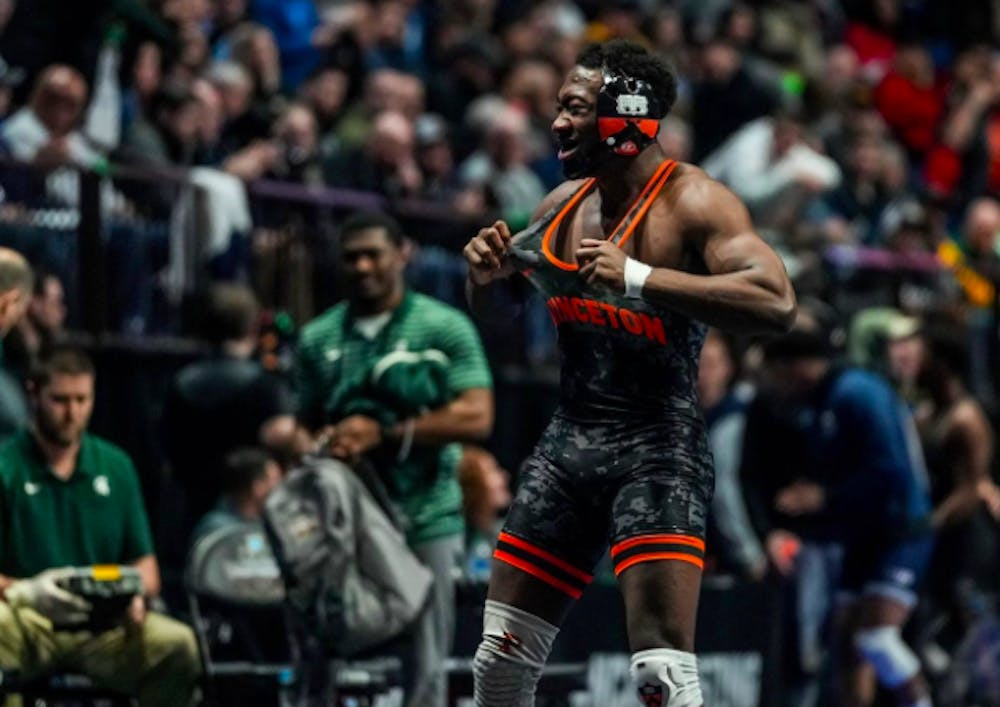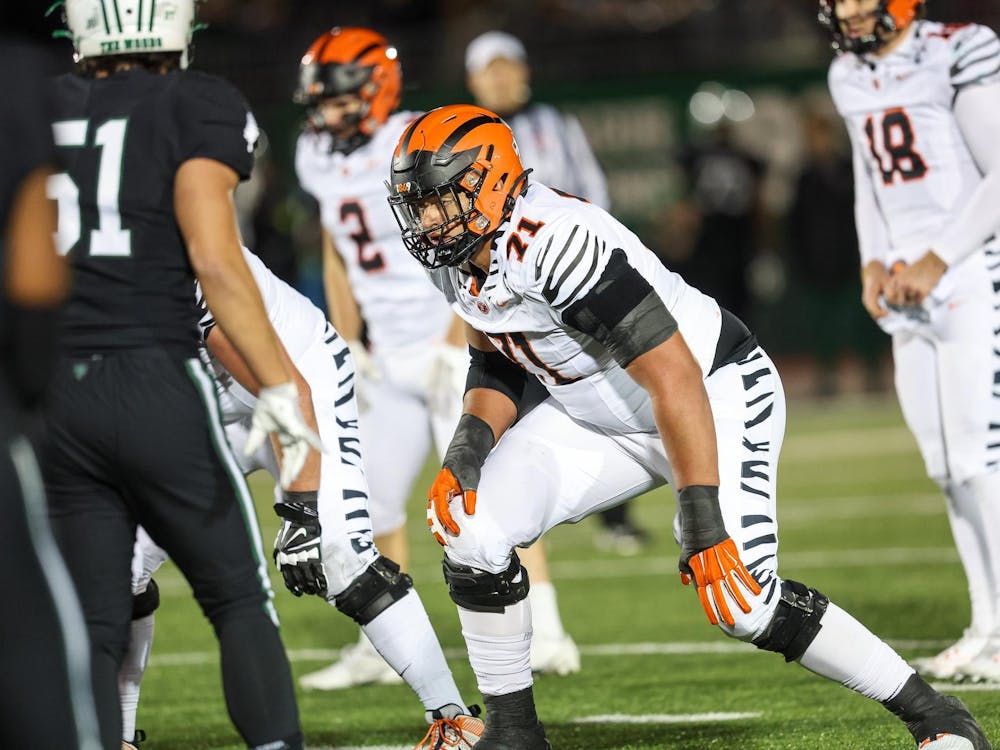“It’s hard to instill in yourself the tradition that alumni can instill in other athletes,” football player Jim Anderson ’86 told The Daily Princetonian in 1985. “[Alumni] say, ‘Look, the tradition of Princeton football is this, and the tradition of Princeton football is that, and we have got to do it for the tradition of Princeton football.’”
“But the tradition has been white, and as a Black athlete you try to say, ‘Yeah, I’ll try to make that my tradition.’ But that’s not our tradition. We’re just getting into Princeton football and establishing ourselves,” he said.
Butch Climmons ’86, another Black football player who was a part of the team, agreed with Anderson’s sentiment.
“It’s difficult to get into the tradition of Princeton,” he told the ‘Prince.’
At the time, only eight Black students were a part of Princeton athletics. Forty years later, organizations like the Black Student-Athlete Collective (BSAC) are working to establish that community by providing a safe space for these student-athletes to meet others in their shoes and voice their needs and concerns to coaches.
Quincy Monday ’23, a three-time All-American wrestler, helped found BSAC in the summer of 2020 following the killings of Breonna Taylor and George Floyd.
“Many Princeton students, regardless of their background, will experience imposter syndrome,” Monday wrote in an email to the ‘Prince.’ “This can be exacerbated if you are one of the only Black students in a classroom or participate in a predominantly white sport.”
Mark-Anthony Prescott ’25 is the co-president of BSAC and a member of the football team. Prescott joined BSAC in the hope of “giv[ing] back to an Institution that has given me so much,” he wrote, feeling that this was an opportunity to enhance the experiences of both himself and his fellow athletes.
Both Monday and Prescott found their antidote to imposter syndrome in their peers. “For me,” Monday wrote, “some of these feelings were resolved just by having conversations with other Black student athletes, in validating how we felt.” Prescott, too, put it simply: “If I could describe my answer [to addressing imposter syndrome] in two words, it would be organic relationships.”
Beyond serving as a safe space for Black athletes, BSAC also aims to facilitate a connection between athletes and the athletic department.
“As long as BSAC has representation, it’ll be successful in my eyes,” Monday wrote.
However, such opportunities for community were not always available. In 1985, four Black student-athletes, some of them the only Black players on their teams, spoke to the ‘Prince’ about the University’s predominantly white sports tradition.

“There is no support system, and it’s basically because blacks haven’t been around Princeton long enough to have some of the support that some of the white athletes have,” Climmons said at the time.
“I think the Black athletes that come here realize they have to go through a lot,” Anderson said.
Recent BSAC events to foster community and support include its welcome cookout on Oct. 25. Prescott called it an opportunity for athletes to reflect on their student experience “while also being a student-athlete,” he wrote. “[I]t’s quite an experience that only we can relate to with each other.”
“The beauty in our success is that this is only the beginning,” Prescott wrote.
Ethan Caldwell is a News contributor for the ‘Prince.’
Please send any corrections to corrections[at]dailyprincetonian.com.








